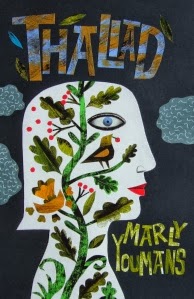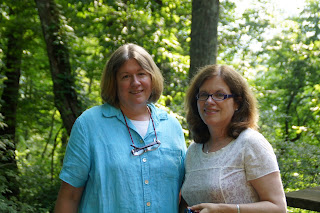 |
| Writing room with books, rocks, and birds |
Here I weigh in
I like the idea of a department having at least one teacher who is wild about his reading and talks about stories from a writer's point of view, and I hope that his enthusiasm for the books he likes is contagious. Then maybe his students will explore and find some of those women writers (he does read Virginia Woolf) he claims not to read. Students are not stupid; they'll notice right away that he doesn't like women writers. Not every professor has to meet every need, cover every question. A department is, one hopes, a wholeness made of disparate parts. (And I, a writer and a woman, am not in a tizzy because David Gilmour will never read A Death at the White Camellia Orphanage. I am fine with that, recognizing that most people on planet Earth have not done so!)
Too many anchovies
The fact that Gilmour spouted all sorts of exciting, teasing non-p.c. things is unfortunate for him and fortunate for journalists and bloggers because he lives and works in a p.c. world. (I know the term "politically correct" is now out of fashion, but (alas) it still describes realities.) Maybe he had too many anchovies at breakfast. Maybe the department chair had just riled him. May the interviewer was a little too attractive. Maybe he had cat-scratch fever. I do not care one whit what his opinions are; they won't stop me from writing or reading as I desire. But I do wish he wouldn't lose his job because of this flap. (Here I note that men appear to be prone to getting themselves into sizzling-hot water at a fairly quick rate.)
The insanity of men and women's powers
I also note that if you look at the bell curves of sanity and neurological deficit, you'll find more men at each end--the crazy, wild smart end and the sad deficit end. Whether the fact that greater numbers of men than women are unleashed from normalcy (and thus, conventional thinking and writing) is a problem for women as writers is a thing we may be able to assess in a few hundred years. But I am confident of women's powers, looking at Jane Austen, Charlotte and Emily Bronte, Christina Rossetti, Emily Dickinson, George Eliot, and many more. If that estrangement from the norm is a measure, well, it seems likely that we have enough women who are also unleashed from the usual.
Weighing in on those who are writing posts (sort of like this, only different)
Weighing in on those who are writing posts (sort of like this, only different)
Can't we get over being so unbearably p. c. and also unloving of anything but the put-down? Violently snubbing him because he hasn't found women writers he likes (his loss) or only read Proust twice (actually he listened to audio twice and read twice, and I doubt that many professors have read/listened all the way through four times) seems absolutely ridiculous.
The Big Weigh
There are only two important genres of books. Good and not-good. Men have managed to write most of the books for many centuries, while women washed the dead and hung out the men's scrubbed undies and birthed the babies (and often died too young because of it, even if they had written Jane Eyre.) Of course there will be more books by men that are great books, and more first-rate work to teach by men. It would be fairly sad story for the male sex if that was not the case. But what about today? Well, time hasn't sifted there, has it? The twentieth century isn't settled yet, much less the current one. But in every age prior, the history of the action of the sands of time on literary works shows us than there is always much more not-good to be rubbed away than there is good to endure. Moral: Women who are writers and men who are writers will both suffer the sifting of time.
The End.
Quit quarreling about it.
Love one another and stay out of trouble (i.e. go read a book or write one, quick! And while you're still online, sign up for Prufrock.)















